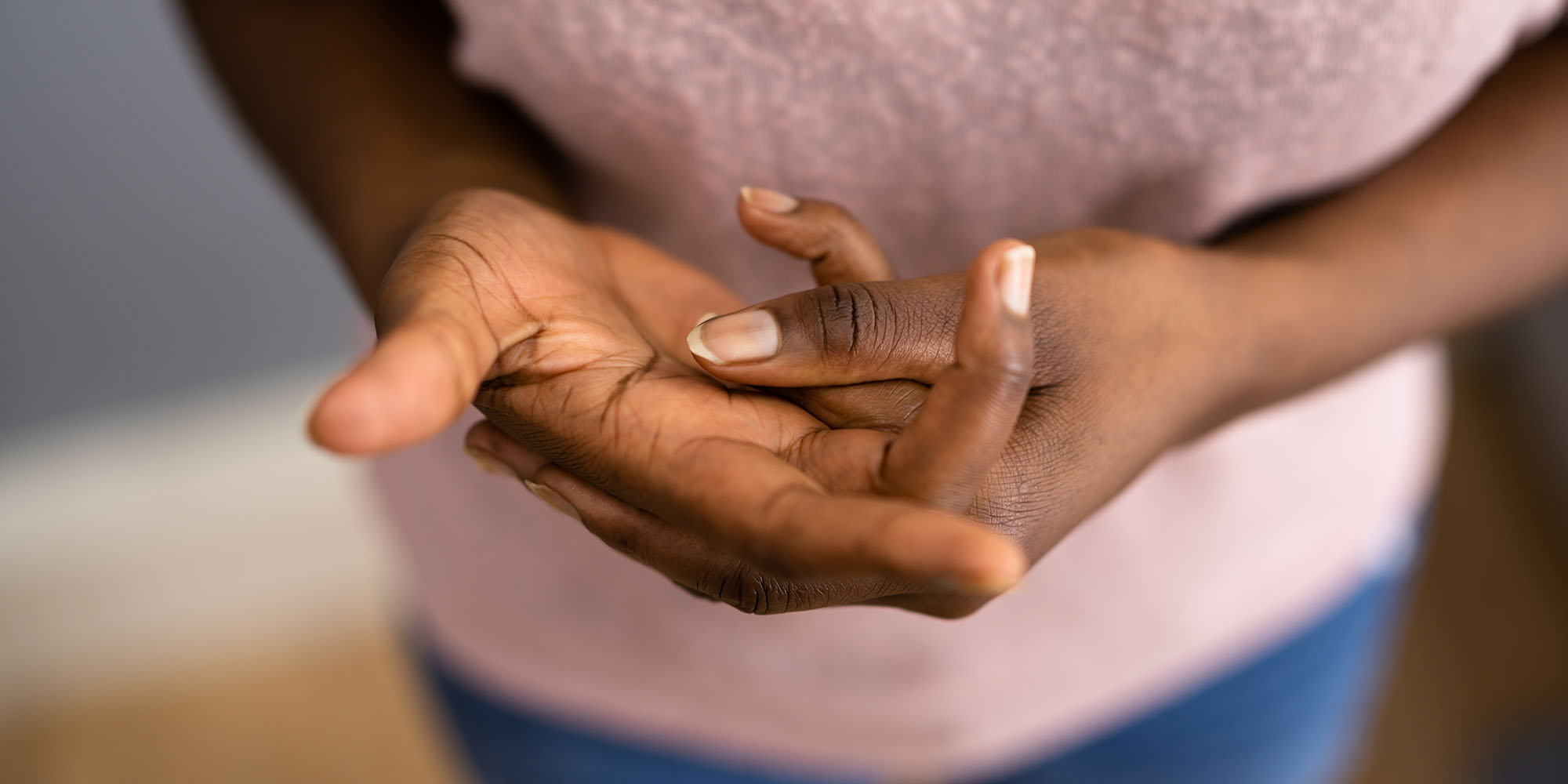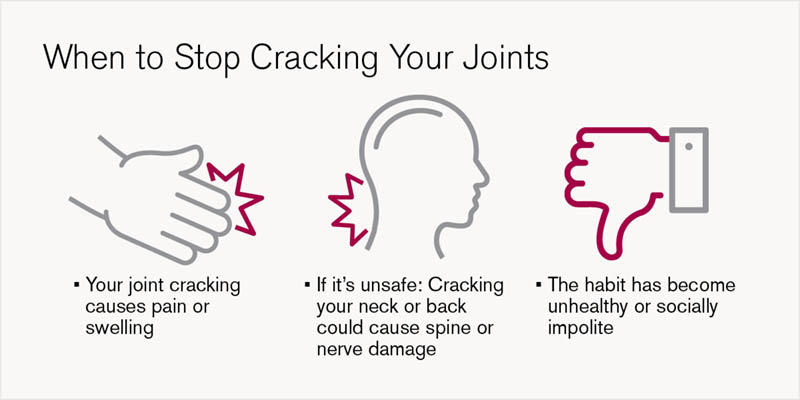6 Facts and Myths About Cracking Your Joints
October 11, 2024
Categories: Orthopaedics, Health & Wellness
Tags: Orthopaedic Surgery
 By Alexander Soneru, MD, Orthopaedic Surgery
By Alexander Soneru, MD, Orthopaedic Surgery
It might be the crack of your knuckles when you press on your fingers. Maybe your shoulder joint snaps when you lift your arm or your knee pops when you bend down. Most people have joints that make noise.
You may wonder why your joints crack or whether you should worry.
Loyola Medicine orthopaedic surgeon, Alexander Soneru, MD, sets the record straight about the noises coming from your joints — and when you should talk to your doctor.
Fact: It’s normal for joints to crack
A joint is where two bones meet. There’s typically a space in the joint that allows the bones to glide over each other as your body moves. In this space you’ll find cartilage, which is a soft coating over the ends of the bones, and joint fluid that acts as a lubricant. Air bubbles are also present in the joint.
Researchers have studied the mechanics of joint cracking since the mid-1900s. Early observations found that a cracked joint will not crack again for about 20 minutes. More recent imaging studies and mathematical modeling shed light on this finding. They suggest that the noise may be due to the collapse of bubbles inside the joint that naturally accumulate.
Another source of noise in a joint is from the tendons that connect muscles to the bones. Everyone's anatomy is a bit different, so some people may have bones that stick out a little more than others. When the tendons move over these bumpy areas, they can create a snapping sound.
“These are normal noises that your body makes,” says Dr. Soneru. “As long as they’re not causing pain, there’s no need for concern.”
Myth: Cracking your knuckles causes arthritis
It’s a common view that knuckle cracking leads to arthritis. But there’s no scientific basis for this myth. Studies show that people who crack their knuckles have the same rates of arthritis as people who don’t.
Dr. Soneru often hears this myth in his clinic. “Parents frequently tell me that their child cracks their knuckles,” he says. “I tell them that they may not like the sound, but they shouldn’t worry about negative effects, such as arthritis, down the road.”
Myth: You need to stop cracking your joints
Up to 54% of people crack their knuckles. Some like the sound or the way it feels. Others find that it helps relieve stress or anxiety. For some people, it can become a habit.
“Unless it’s causing pain or swelling, there’s no medical reason to stop,” says Dr. Soneru. “But it may bother the people around you. Like chewing with your mouth open, it may not be socially acceptable to crack your knuckles in some situations.”
If your knuckle cracking is a concern and you want to stop, try these strategies:
- Consider why you crack your knuckles and what triggers it
- Keep your hands busy with stress balls or fidget toys
- Manage stress and anxiety with exercise, yoga or meditation
- Recognize when you are about to crack your knuckles and stop yourself before you do it
Fact: Your joints may make more noise as you age
As you get older, deterioration of the cartilage between your joints due to wear and tear can lead to arthritis. Some people develop arthritis earlier in life due to genetic factors, but it occurs to almost everyone sooner or later.
As the cartilage wears down, the bones rub against each other. This causes pain, swelling and a grinding noise that you may be able to hear. This noise is a little different than your average knuckle popping. It may be more of a crunchy sound when you move.

Fact: Cracking your neck and back can be unsafe
Your spine is an intricate column of bones that protects your spinal cord. The bones, called vertebrae, move over each other and provide flexibility. Nerves that branch off your spinal cord control everything you do and feel.
“I'm always a little bit more cautious when people crack their neck or back,” says Dr. Soneru. “The wrong sort of movement could damage the spinal cord or nerves.”
Chiropractors are specialists who adjust spinal joints with their hands or instruments. If you seek chiropractic care, make sure you select a trained and licensed professional.
Fact: If a cracking joint causes pain or swelling, talk to your doctor
Some people feel relief when their joint cracks. “I typically say, if it makes you feel better, then you can continue to crack the joint,” says Dr. Soneru. “Painless noises that are coming out of the joints usually don't have serious implications now or in the future. You can just keep an eye on them over time.”
But if cracking causes pain or swelling, it’s time to talk to your doctor. Dr. Soneru advises starting with your primary care provider to assess your symptoms.
If you need higher level care, Loyola’s Orthopaedics program offers comprehensive, expert care for all types of joint problems. A full range of rehabilitation services are also available to help you function and move better.
To make an appointment today, call 888-584-7888 or schedule an appointment online.
Alexander Soneru, MD, is an orthopaedic surgeon at Loyola Medicine. He is board certified in orthopaedic surgery and specializes in the hands and lower arm.
Dr. Soneru received his medical degree from the University of Chicago Pritzker School of Medicine. He completed his residency at the McGaw Medical Center of Northwestern University and fellowship at the University of Louisville School of Medicine.
Book an appointment today to see Dr. Soneru or another Loyola orthopaedic specialist by self-scheduling an in-person or virtual appointment using myLoyola.
